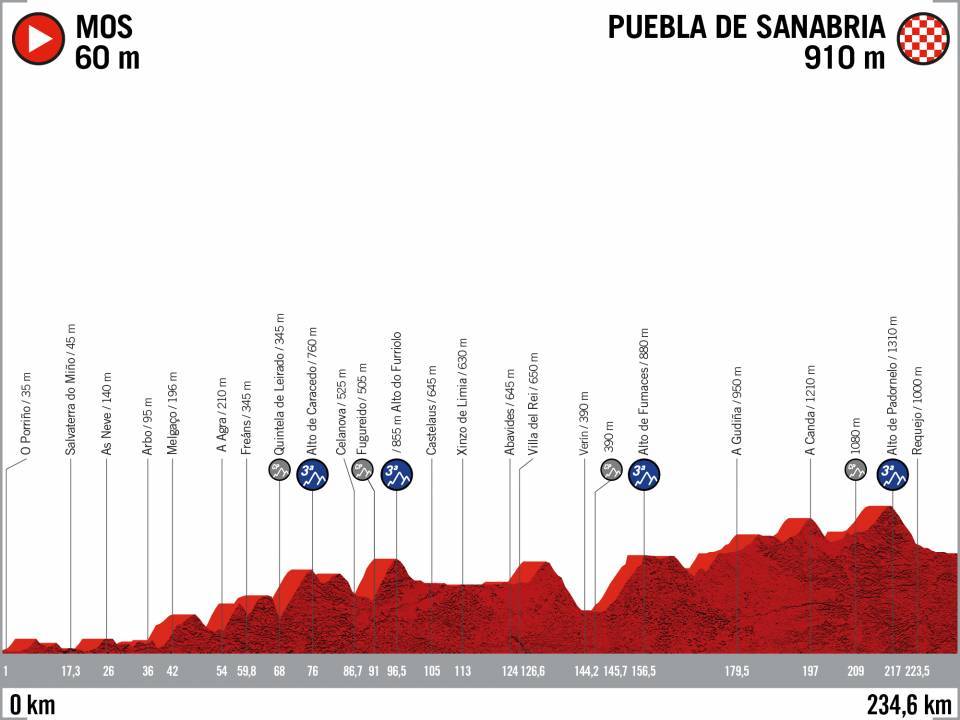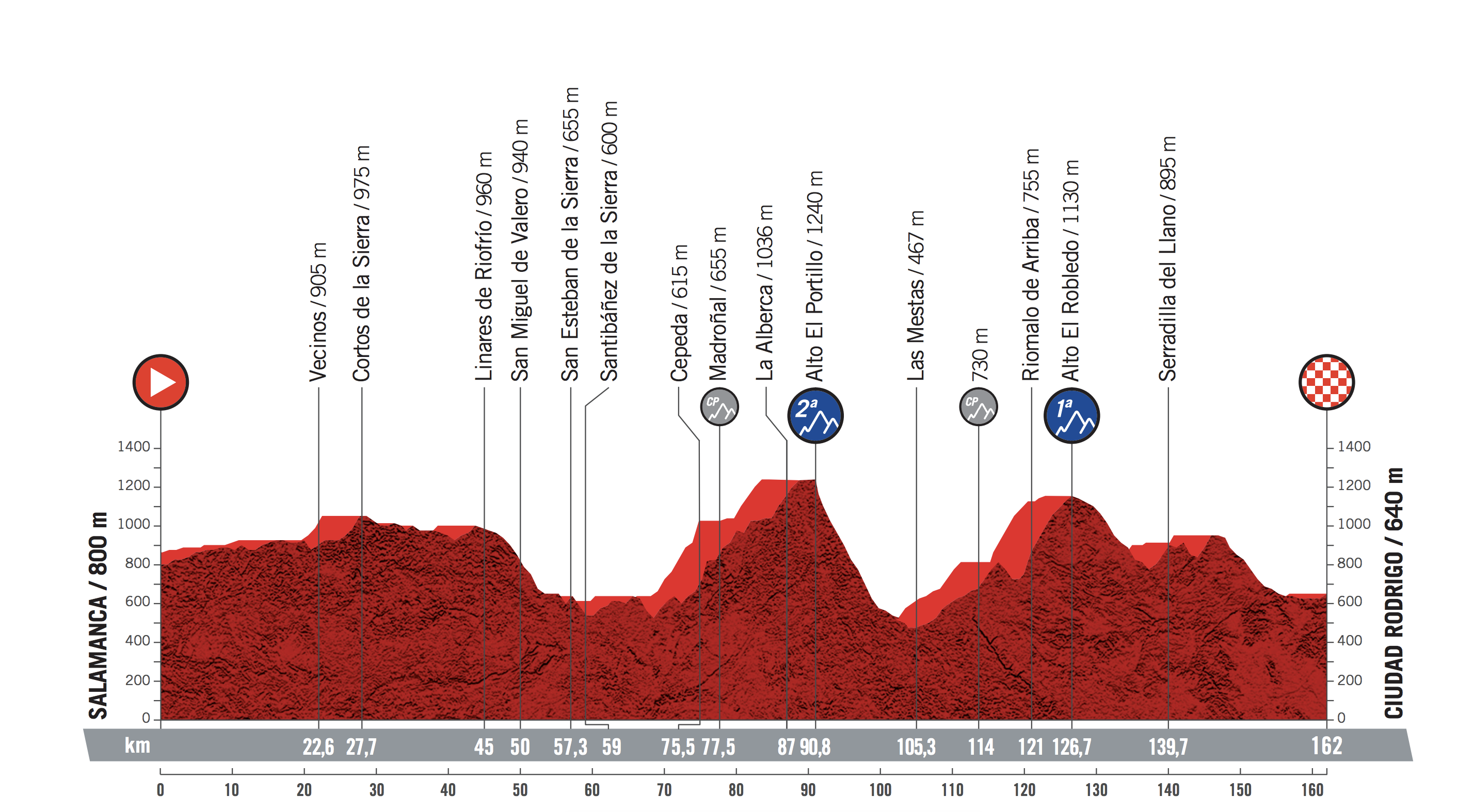Vuelta a España 2020 gets tougher third-week stages to replace Portuguese leg
Two sprint stages replaced by hills and mountains of western Spain


An already mountainous Vuelta a España route for 2020 has become even tougher as organisers confirmed Friday that two flat stages in and out of Portugal in the third week have been replaced by two difficult treks through western Spain.
Already three stages down from its original 2020 format after the Netherlands opening leg was scratched because of knock-on effects from the COVID-19 pandemic, the Vuelta organisers were also forced to search for alternative routes for two third-week stages after it opted to avoid crossing the frontier into Portugal as had been planned.
As a result, stage 15, which was due to head south from the Galician town of Mos into Porto, Portugal's second city, will now finish in the northwesterly Spanish town of Puebla de Sanabria instead.
Stage 17, rather than starting in the Portuguese town of Viseu, will begin in the Spanish university city of Salamanca, but finish - as was always planned - in the Spanish frontiier town of Ciudad Rodrigo.
At 234 kilometres, stage 15 from Mos to Puebla de Sanabria will have just four third-category climbs as it wends its way eastwards, but the rolling terrain of Galicia and Zamora with barely a metre of flat land - not to mention the likely poor weather that predominates in the area in autumn – will make it very hard for any team to control.
"Sometimes stages like that are more difficult than the mountainous ones, particularly as we're in the third week," double Vuelta a España winner and television commentator Pedro Delgado told Spanish broadcaster TVE when the route was published on Friday.
Stage 16 will take the Vuelta a España into the remote mountains of the Sierra de Francia, with a second category climb mid-stage and the first category Alto de Robledo 35 kilometres from the finish.
Get The Leadout Newsletter
The latest race content, interviews, features, reviews and expert buying guides, direct to your inbox!
"It's much shorter than stage 15, but the mountain roads there are very difficult and there are a couple of short 'ramps' after the first category climb as the race heads to the finish that could increase the damage," Fernando Escartin, co-route designer and former Tour de France podium finisher, told TVE.
"The two stages will have a knock-on effect, too," pointed out Delgado, "because the next day, stage 17, is the last summit finish on La Covatilla and riders will be feeling even closer to their limit."
The Vuelta a España 2020 starts on October 20th in the Basque Country and finishes on November 7th in Madrid.
Alasdair Fotheringham has been reporting on cycling since 1991. He has covered every Tour de France since 1992 bar one, as well as numerous other bike races of all shapes and sizes, ranging from the Olympic Games in 2008 to the now sadly defunct Subida a Urkiola hill climb in Spain. As well as working for Cyclingnews, he has also written for The Independent, The Guardian, ProCycling, The Express and Reuters.
